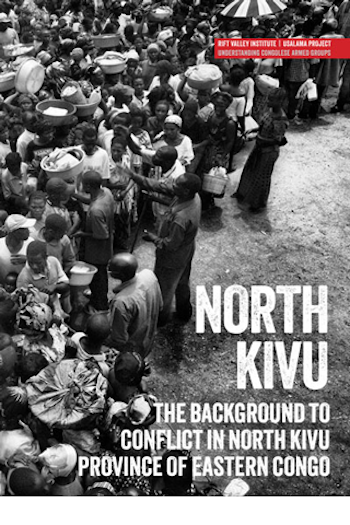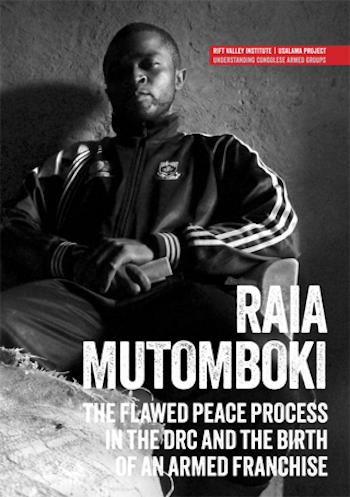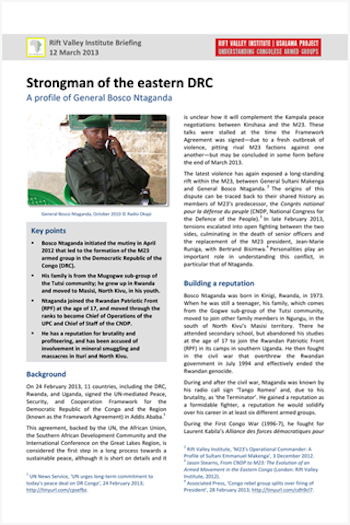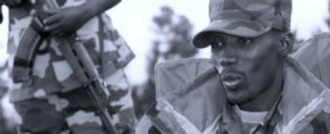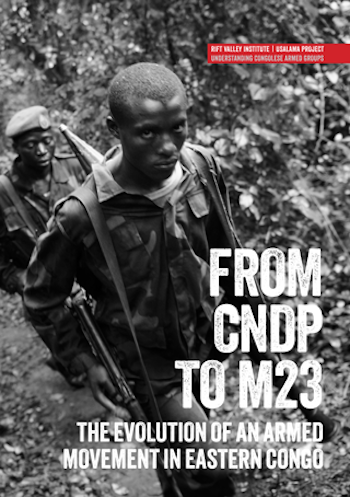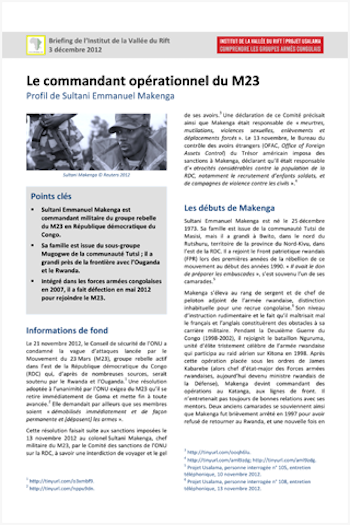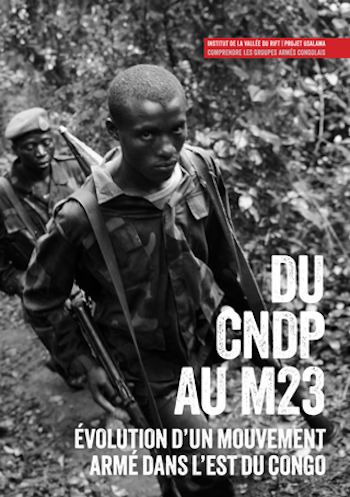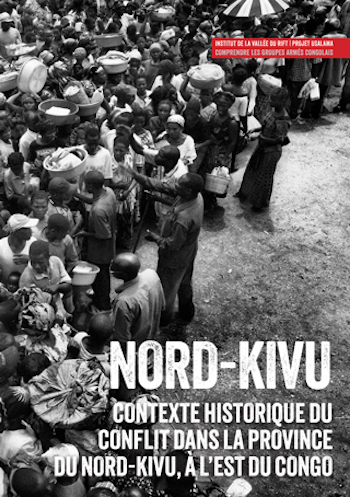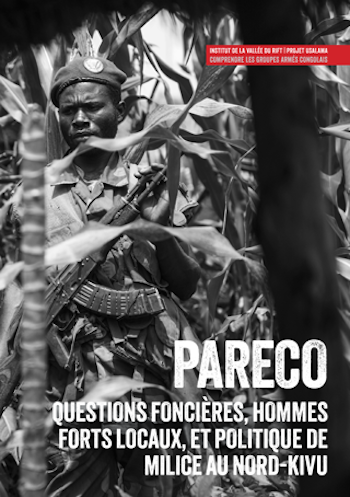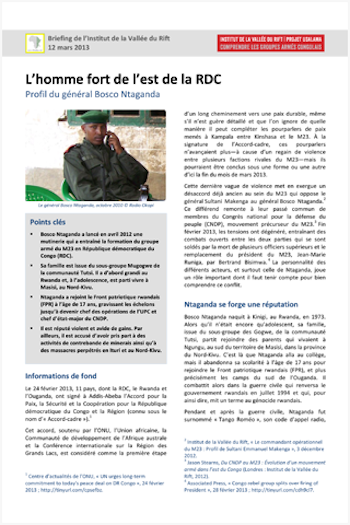This Usalama Project report sketches the historical background to the proliferation of armed groups that have emerged in the North Kivu province of the DRC over the past two decades. It serves primarily to demystify the numerous factions and…
RVI publishes books, research reports, research papers, briefings and meeting reports in a range of formats. Publications cover policy, research, arts, culture and local knowledge in the countries of eastern and central Africa. Research publications—books, reports and papers—are peer-reviewed. Some RVI publications are also available in French and/or Arabic.
The RVI is a signatory of the Budapest Open Access Initiative (2001); all publications are free for download in PDF format under Creative Commons licences. The views expressed in books and reports published by the RVI are those of the authors, not the Institute.
SEARCH
PUBLICATION TYPE
LANGUAGE
REGION
COUNTRY
This Usalama Project report describes the origins, rapid evolution, expansion and activities of this diverse force. The group began as a local response to rampant insecurity but profited from flaws in the various peace deals in the eastern DRC,…
About this publication This Usalama Project Briefing presents a profile of one of the M23’s most important commanders, General Bosco Ntaganda. Despite his indictment by the International Criminal Court on charges of recruiting child soldiers, murder, rape, and sexual…
This Usalama Project briefing presents a concise biography of the M23’s senior commander, Sultani Makenga, in the eastern Democratic Republic of the Congo (DRC). It describes his rise through the ranks, his earlier membership of the Rassemblement congolais pour la…
This Usalama Project report explores the 2012-2013 M23 rebellion in the eastern DRC. It also discusses the implications of the rebellion for the DRC’s eastern neighbours, Rwanda and Uganda, who have been accused of aiding and abetting the M23. ‘Despite…
Ce briefing du Projet Usalama présente une biographie concise du commandant en chef du M23, Sultani Makenga. Il décrit son ascension dans les rangs, son adhésion précédente au Rassemblement congolais pour la démocratie (RCD) et au Congrès national pour…
Ce rapport du Projet Usalama explore les racines de la plus récente rébellion dans l’est de la RDC. Il discute aussi les implications de la rébellion sur les voisins à l’est de la RDC, le Rwanda et l’Ouganda, qui…
Ce rapport du Projet Usalama résume le contexte historique de la profusion des groupes armés qui ont surgit dans les deux dernières décennies dans la province du Nord-Kivu en RDC. Le rapport sert à démystifier les nombreux factions armées…
Ce rapport du Projet Usalama traite des origines et activités de la PARECO, la Coalition des patriotes congolais résistants, une faction qui a surgit de griefs locales au sujet de questions foncières, devenait puissant comme réponse au CNDP et qui…
Ce briefing du Projet Usalama présente un profil de l’un des commandants les plus importants du M23, le général Bosco Ntaganda. Malgré son inculpation par la Cour pénale internationale sur des accusations d’enrôlement et utilisation d’enfants soldats, de meurtre,…
Recent Publications

EWNET Writes: Writing Workshop Session I
December 18, 2025
The Ethiopian Women Researchers Network (EWNET) inaugural writing workshop series aims to not only provide women researchers with uninterrupted time for their scholarly projects, but also build a supportive academic community. The first session, entitled ‘EWNET Writes: Writing Workshop Session

SSC-Khaatumo: Perspectives on the significance and implications of its formation
December 12, 2025
On 15 April 2025, during a visit to the city of Las Anod in Sool, Prime Minister Hassan Abdi Barre officially declared the federal government’s recognition of SSC-Khaatumo (SSC-K hereafter) as a federal member state, marking an important milestone in

Aid and Conflict Sensitivity in Contemporary Ethiopia
November 17, 2025
This study assesses conflict sensitivity practices among humanitarian, development and peacebuilding (HDP) actors in Ethiopia. It seeks to raise awareness and foster a deeper understanding of the evolving aid landscape in the country while analysing the challenges that affect conflict-sensitive

